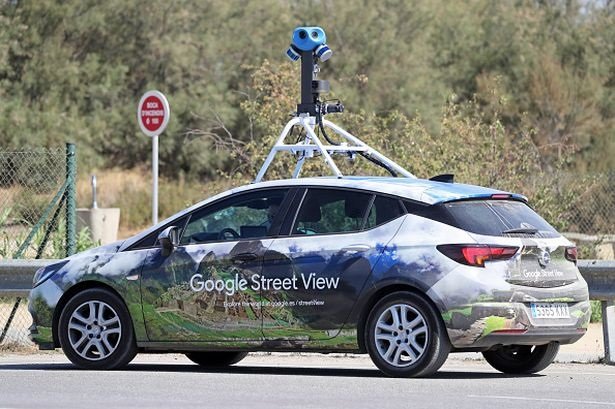Argentine Police Officer’s Privacy Battle Highlights Google’s Street View Oversight
NEW DELHI (India CSR): In a small Argentine town, a police officer’s private moment in his backyard turned into a public spectacle when a Google Street View car captured him completely naked. Despite being behind a 6-foot-6 wall, the image was uploaded online, unblurred, with his house number and street name clearly visible. The resulting humiliation at work and among neighbors led to a landmark legal battle, culminating in a court awarding him approximately Rs 10.8 lakh ($12,500) in damages. This case raises critical questions about privacy, technology, and corporate responsibility in the digital age.
The Incident: A Private Moment Made Public
In 2017, the unnamed police officer was in his backyard in a small Argentine town, unaware that a Google Street View car was passing by. The vehicle’s camera, designed to capture street-level imagery for Google Maps, photographed him in the nude. The image was uploaded to Google Street View without blurring, exposing not only his body but also identifiable details like his house number and street name. For a man in a tight-knit community, the consequences were immediate and devastating. Colleagues and neighbors began ridiculing him, turning a private moment into a source of public shame.
The Legal Battle: Fighting for Dignity
The officer filed a lawsuit against Google in 2019, arguing that the company’s negligence violated his privacy and caused significant emotional distress. Initially, a lower court dismissed the case, controversially blaming the man for being outside in an “inappropriate condition.” However, an appeals panel in July 2025 overturned this decision, emphasizing the sanctity of private spaces. “This involves an image of a person not captured in a public space, but within the confines of their home, behind a fence taller than the average-sized person,” the court stated. The judges described the invasion as “blatant,” highlighting Google’s failure to protect the man’s dignity.
Google’s Defense and Policy Shortcomings
Google’s defense rested on the claim that the officer’s perimeter wall was not sufficiently high to ensure privacy. However, the court rejected this argument, noting that the 6-foot-6 wall provided reasonable seclusion. The judges also pointed to Google’s own Street View policies, which include automatic blurring of faces and license plates to prevent harm to third parties. “The fact that Google has technology to blur identifiable features shows they recognize their duty to avoid harm,” the court observed. In this case, the man’s “entire naked body” was left unblurred, a clear oversight that the court deemed unacceptable.
The Broader Implications: Privacy in the Digital Age
This case underscores the growing tension between technological innovation and personal privacy. Google Street View, launched in 2007, has revolutionized how people navigate and explore the world online, but it has also faced criticism for privacy violations. Incidents like this one highlight the limitations of automated systems in protecting individuals. While Google’s website states that users can request the blurring of their house, car, or body via a “Report a problem” tool, this reactive approach places the burden on individuals to address violations after the fact. For the Argentine officer, the damage was already done by the time the image was uploaded.
Google’s Response and Future Precautions
Following the court’s ruling, Google has not publicly commented on the specific case but reiterated its commitment to privacy through its Street View policies. The company’s website emphasizes its “cutting-edge face and license plate blurring technology” and encourages users to report problematic images. However, this incident raises questions about whether Google’s current safeguards are sufficient. Experts suggest that proactive measures, such as enhanced AI algorithms to detect and blur sensitive content before publication, could prevent similar incidents in the future.
A Victory for Privacy Rights
The court’s decision to award Rs 10 lakh in compensation sends a powerful message to tech giants about accountability. “No one wants to appear exposed to the world as the day they were born,” the judges declared, affirming the officer’s right to privacy in his own home. This ruling may set a precedent for future privacy cases, particularly in jurisdictions where individuals seek to hold corporations accountable for unintended exposures. For the officer, the compensation offers some relief, but the emotional toll of public humiliation may linger.
You Learn: Balancing Innovation with Responsibility
The Argentine police officer’s victory against Google is a reminder that as technology advances, so must the mechanisms to protect individual rights. While Google Street View provides an invaluable service, incidents like this highlight the need for stricter oversight and more robust privacy protections. As the world becomes increasingly connected, cases like this one serve as a wake-up call for tech companies to prioritize human dignity alongside innovation.
(India CSR)







